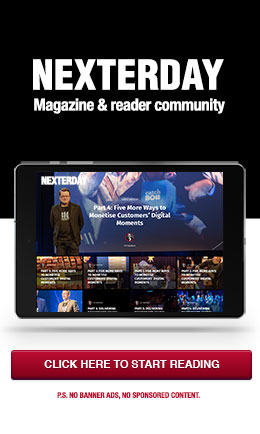Is Big Data Actually Relevant for Your Business Strategy?
Posted: June 13th, 2013 | Author: Matti Aksela | Filed under: Industry Insights | Tags: analytics, big data, predictive analytics | 1 Comment »You can’t go far in the telecommunications industry – or nearly any other industry, for that matter – without hearing about the importance of big data. As we’ve mentioned before, with voice and text revenues declining, the art of applying analytics to customer data is moving into the spotlight. By monitoring how people are using data, communications service providers (CSPs) are hoping to discover new revenue streams and create more personailised marketing offers.
Paolo Sidoti, global managing director of Accenture’s Network Business Services group, recently explained to Light Reading that operators need to “reconnect with customers,” and big data analytics is the tool they’re using to do it. All of that sounds good in theory, but the reality isn’t as clear cut.
Accenture reported that just 22 percent of operators are “very satisfied” with their analytics tools. More than a third said they are “dissatisfied.” Another recent finding from the company indicated why that may be: CSPs are gathering a lot of data, but 61 percent said that it isn’t relevant for their business strategies.
Big Data Can Be a Big Mess
The emphasis on big data has inspired a lot of CSPs to pay closer to attention to what their customers are actually doing, but without a way to automate interactions and create an operational analytics program that automatically learns and adapts to use cases over time, big data can create more work than it’s worth. No CMO wants to sit in front of the computer sorting through 100,000 different customer profiles to try and manually predict who would top-up to watch a video on their phone, and then try to figure out what campaign would work best.
That’s why, in its raw form, it’s hard to make big data relevant for any business strategy. The information is simply too diverse and disorganised to use, and not every solution fits the bill. Accenture’s findings showed that 93 percent of the operators surveyed said they needed new or improved products to help with analytics. With so many CSPs saying they need better tools, it’s no wonder they’re disappointed with big data. If you can’t properly sort and operationalise the data, then it will never be useful for building better relationships with customers.
One key aspect to utilising the data is to make sure it is available in a timely manner, which is something Comptel has been doing for our customers by online mediation solutions. While data does not really have an expiration data, waiting months and expecting to get the same value is just not very realistic. But purely focusing on the event at hand isn’t the solution, either.
We believe that creating an individual profile from customer data and combining it with the true context of the subscriber is the key. We also work in-depth with our customers on slower moving data and can provide excellent results there, but if I were sitting on the other side of the table, I would want a solution that takes advantage of streaming data.
Comptel’s predictive and automated analytics solves the problems of big data with powerful, machine-learning capabilities that ensure automated actions are taken at the right time to the right audience, with the right context. It’s in this way that CSPs can leverage big data analytics to customise their campaigns to each individual customer’s preferences and unique needs. More importantly, the insights that are delivered are helpful to the overall business strategy, too, making it easier to integrate analytics into customer loyalty and marketing programmes.
The use of big data for CPSs is not limited to marketing functions, either. Comptel provides predictive analytics solutions to operationalise use cases that will help show the value of data across networks and the impact and cost of different solutions on the technical environment. Additionally, predictive analytics can be linked to the subscriber level and help optimise policy-throttling activities.
Big data is also about breaking down the siloes. Rather than treating your network as one pillar of your business and the customer as the other, analytics is applied to data across the company. As we’ve said before, the future of marketing is networks and the future of networks is marketing. By bridging silos across the organisation, CSPs create a better end-to-end user experience – and with the vast volumes and huge dimensionality of this data, the way to do this efficiently is through machine learning and predictive modeling instead of trying to work within the scope of humanly manageable data.
Overcoming the Second Hurdle
In a lot of ways, the disappointment CSPs are feeling is a good sign, because it shows there’s an awareness of big data’s potential. While solutions are in use to address some parts of the problem, most operators are still experimenting with what works best for their businesses. But it’s reassuring that they’re so aggressively trying to figure that out and appreciate the value that big data can bring.
Comptel strives to stay beside CSPs every step of the way. A business strategy needs the right tools to work, and our array of solutions for big data analytics has helped businesses achieve an accuracy rate of 80 percent and outperform the competition 90 percent of the time. We’re determined to help transform big data across all of an operator’s units and siloes into actionable insights, and augment it with additional data sources from outside of the operator environment, such as social media. That way, data can become an organised and operational asset that can be used to build business and better customer relationships.






Leave a Reply